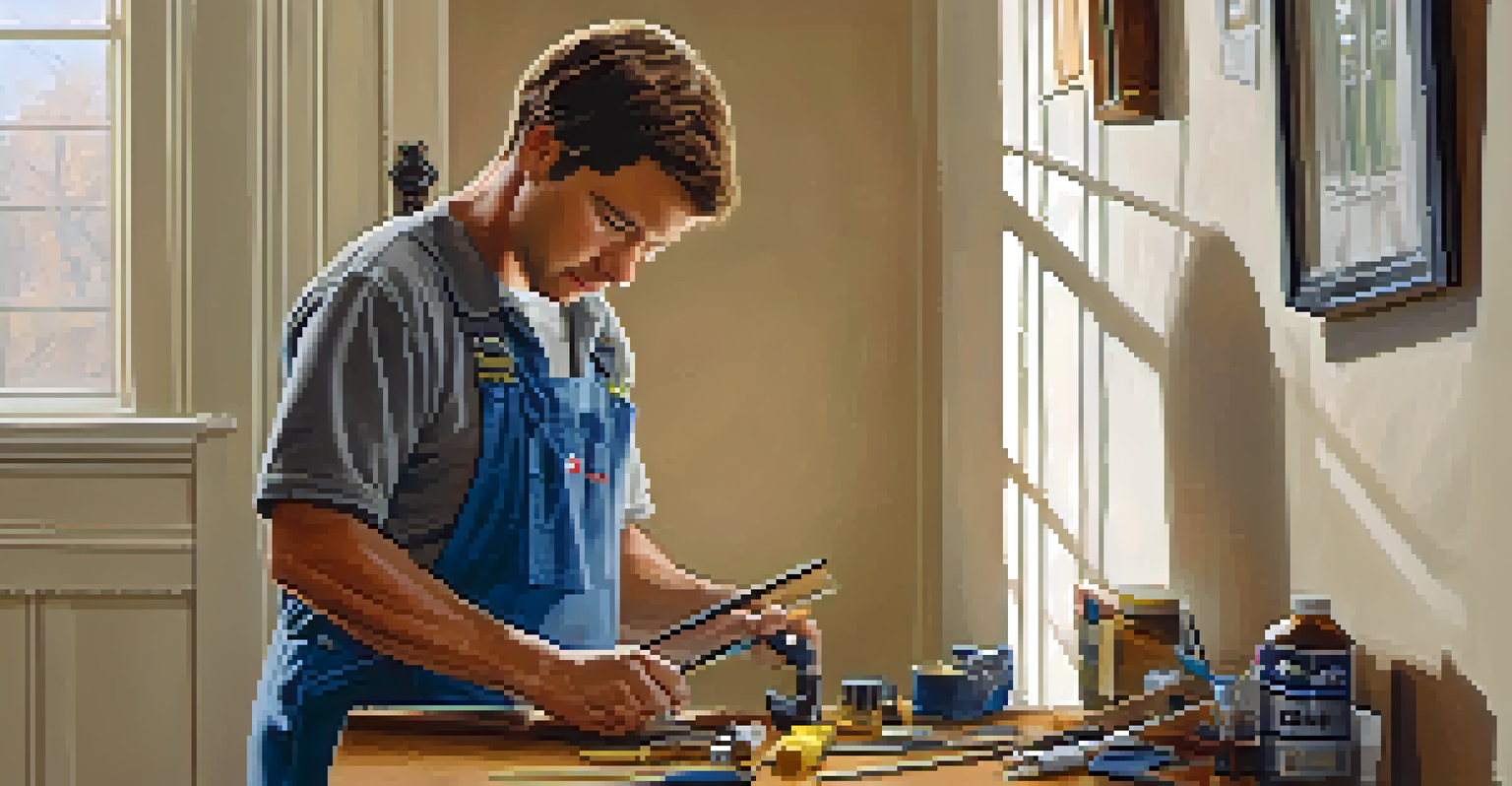Essential Steps to Prepare Your Home for an Inspection

Understand the Inspection Process and Its Importance
Preparing for a home inspection starts with understanding what it entails. A home inspection is a thorough examination of a property's condition, focusing on its structure, systems, and overall safety. This process is crucial as it can reveal potential issues that could derail a sale or lead to unexpected expenses.
Home is not a place, it's a feeling.
Knowing the inspector will look at everything from the roof to the foundation helps you pinpoint areas that may need attention. Each detail matters, and any issues found can affect negotiations or the sale price. By being informed, you can approach the inspection with confidence and clarity.
Think of the home inspection as a health check-up for your house. Just like a doctor examines your body for any potential problems, an inspector will look for issues that need fixing. Understanding this parallels the need for a proactive approach to prepare your home adequately.
Declutter Your Home for a Clearer Inspection
One of the first steps in preparing for an inspection is decluttering your home. A tidy space allows the inspector to see all areas clearly, making it easier to assess the condition of your property. Think of it as clearing off a desk before a big presentation; it helps you focus on what really matters.

By removing excess items, you not only help the inspector but also make your home feel more spacious and inviting. This can create a positive impression, making it easier for potential buyers to envision themselves living in your space. Remember, the goal is to highlight your home’s best features.
Understand the Inspection Process
A home inspection is essential for identifying potential issues that may affect the sale or lead to unexpected costs.
Decluttering can also help you identify any small repairs or maintenance tasks that need addressing. As you sort through your belongings, you might discover areas that require attention, ensuring that you're presenting your home in its best light.
Address Minor Repairs Before the Inspection
Before the inspection day arrives, it's essential to tackle any minor repairs around the house. Think of minor repairs like putting fresh paint on a car; it enhances the overall appearance and value. Simple fixes like patching holes in walls or tightening loose doorknobs can make a significant difference.
A house is made of walls and beams; a home is built with love and dreams.
Inspectors often note even the smallest issues, which can signal to potential buyers that there may be larger problems lurking beneath the surface. By addressing these small repairs, you can present a well-maintained home that instills confidence in buyers. It’s all about showing that you care about your property.
Furthermore, a well-kept home often leads to a smoother inspection process. A few hours spent fixing minor annoyances can save you from more extensive negotiations later on, making it a worthwhile investment of your time.
Clean Your Home Thoroughly for a Fresh Look
A deep clean is a crucial step in preparing your home for inspection. A clean home not only looks more appealing but also signals to the inspector that the property has been well cared for. Similar to how a good first impression sets the tone for a meeting, a clean environment can positively influence the inspection outcome.
Ensure you pay attention to often-overlooked areas like baseboards, windows, and appliances. These details can make a big difference in how your home is perceived. A fresh, clean space allows the inspector to focus on the property itself rather than distractions caused by dirt or clutter.
Clear Access and Prepare Documentation
Ensuring key areas are accessible and having necessary documentation ready enhances the inspection process and builds trust with buyers.
Consider enlisting the help of a professional cleaning service if time is tight. A thorough cleaning can elevate your home’s overall appeal and may even lead to a more favorable inspection report.
Ensure All Utilities Are Functioning Properly
Before the inspection, it's crucial to ensure that all utilities are in good working order. This includes checking your plumbing, electrical systems, and heating or cooling units. Just like a car needs to run smoothly for a test drive, your home should be fully functional for the inspection.
Inspectors will test various systems and appliances, and any malfunction can raise red flags. If something isn’t working correctly, it may lead to more in-depth scrutiny or even a lower appraisal value. Addressing these issues beforehand allows for a more seamless inspection process.
Performing a quick run-through of all systems can save you time and headaches later on. If you notice anything amiss, consider having a professional take a look before the big day.
Clear Access to Key Areas in Your Home
To facilitate a smooth inspection, make sure that key areas of your home are easily accessible. This includes attics, basements, crawl spaces, and any utility areas. Just as you would want to provide clear directions to a guest, giving inspectors unobstructed access helps them conduct a thorough examination.
Remove any furniture, boxes, or debris that could hinder access. This not only allows for a more efficient inspection but also demonstrates your commitment to maintaining the property. It’s about making it easy for the inspector to do their job and showcase your home's strengths.
Address Minor Repairs and Clean
Tackling minor repairs and performing a deep clean can significantly improve the home’s appeal and the inspector's impression.
Remember, the easier you make it for the inspector, the more likely they are to have a positive impression of your home. An open and inviting space encourages a favorable evaluation.
Prepare Necessary Documentation for the Inspector
Having the right documentation ready can smooth the inspection process significantly. This includes any warranties, service records, and permits related to repairs or renovations. Just as a driver should keep their license and registration handy, homeowners should be prepared with relevant paperwork.
Providing this information shows transparency and can help build trust with potential buyers. It also gives the inspector a complete picture of your home’s history, potentially highlighting upgrades or repairs that enhance its value.

Make a checklist of documents to gather in advance to ensure nothing is overlooked. This preparation can alleviate stress on inspection day and create a more favorable atmosphere.